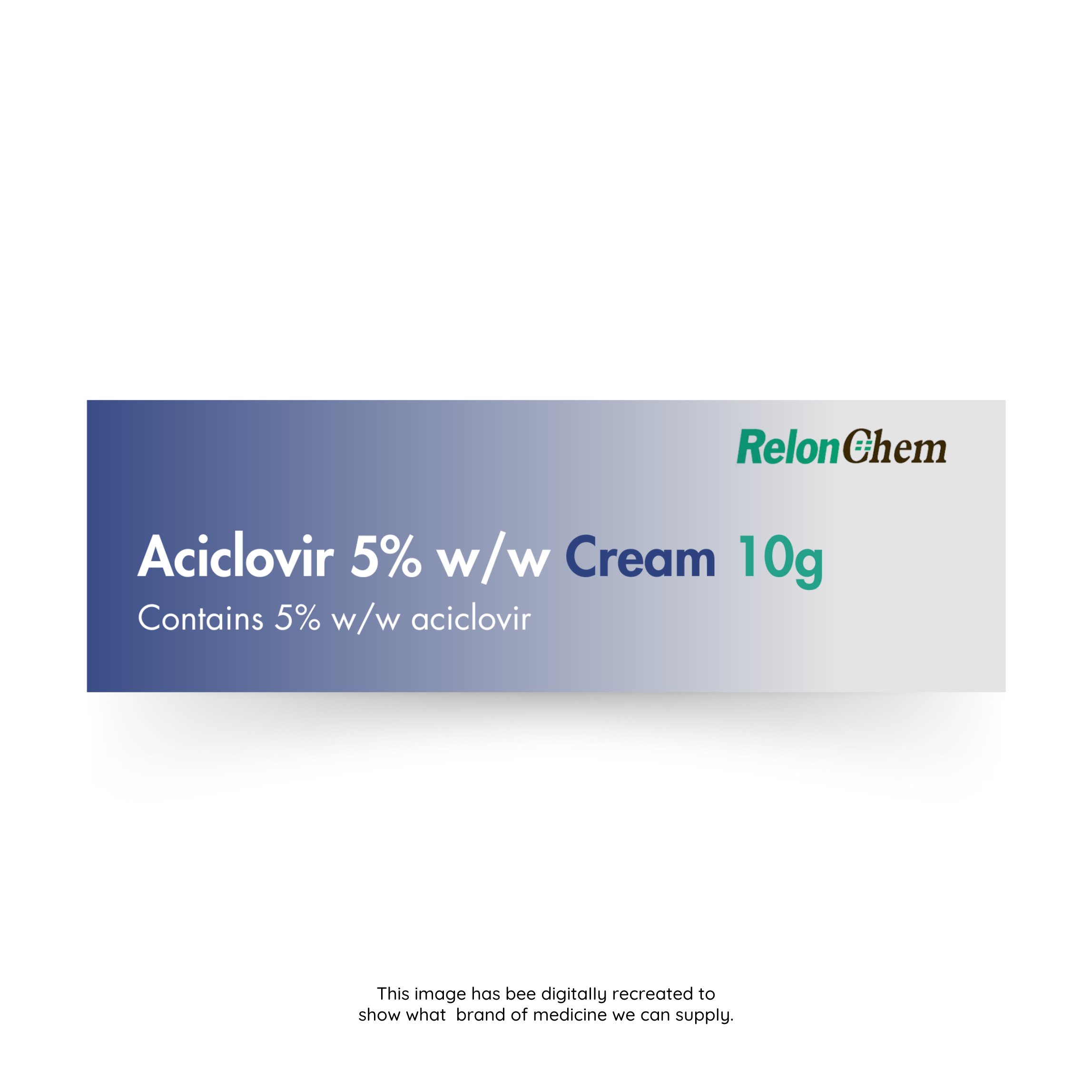Popular Searches
Aciclovir %5 10g cream

Fastest delivery:
Order by 03:00pm
-

Free delivery over £40
Fast, tracked delivery from £4.99. Arrives as quickly as the next working day.
-

100% UK-based pharmacy
Our team of doctors and prescribers, and our support staff, are all UK-based.
-

Free support and advice
We're on hand to offer support and advice by email and telephone.
-

We are rated 5 out of 5
Based on 100's of reviews that have been collected by our patients on Google.
Description
What is Aciclovir Cream?
Aciclovir is an antiviral. It kills the herpes virus which is the cause of cold sores around the mouth and face. Aciclovir can prevent cold sores from appearing if the outbreak is detected early at the "tingle" phase. It can usually help to heal a cold sore within 4 - 5.
Cold sores recurring in the same area are common. This area of the skin may tingle or burn before a cold blister appears around the lips. Aciclovir can be applied immediately after the tingling sensation is felt.
You can order Aciclovir Cream online if your doctor has diagnosed you with recurrent Cold Sores. Children or genital herpes should not be treated with this cream. Cold sores around the nose, or those that are yellow and crusty may indicate impetigo. Your doctor should be consulted.
Warnings
Aciclovir cream warnings
Aciclovir cream should not be used if you:
If you are allergic to any of the ingredients or aciclovir, then this medication is not for you.
If you have a condition that affects your immune system or makes your body less capable of fighting infections (e.g. HIV, AIDS, or a bone marrow transplant)
Before using Aciclovir Cream, please be aware of these things:
Aciclovir cream should not be used inside the mouth, vagina or genital area.
If the cold sores do not heal after 10 days, you should consult a doctor.
If the cold sores are sticky and thickly crusted, they may be caused by a bacterial infection.
If you notice that your cold sores are occurring more frequently, it could be an indication of a reduced immunity. You should seek medical advice.
Manufacturers of aciclovir advise women to avoid using the cream if they are pregnant or breastfeeding.
Directions
How to Apply Aciclovir Cream
Before and after using the cream, wash your hands. This will help to stop the cold sores spreading.
Use a small amount on your finger to gently rub the cold sore.
Five times a day (roughly four times a day) apply Aciclovir to the cold sores.
Even if your cold sore is healed, you should continue treatment for another FOUR days. If the cold sore has not healed yet, you can continue treatment for another FIVE days.
If you have not seen improvement after nine days of Aciclovir treatment, then it is important to consult your doctor.
Aciclovir is ineffective if you start using it more than five day after the cold sore appears. In this case, do not use Aciclovir. Aciclovir should be applied as soon as a cold sore appears.
Ingredients
Aciclovir cream is a cream that contains aciclovir 5%.
The product also contains inactive ingredients such as: cetostearyl ethanol, sodium laurylsulfate (SLS), white soft paraffin or liquid paraffin. Propylene glycol and purified water are also included.
Side Effects
Aciclovir cream side effects
Aciclovir cream is generally used without any adverse effects. If you experience side effects, they will likely be mild at first and occur during the beginning of your treatment. These include:
After applying the cream, you may experience a burning or stinging feeling (this will disappear).
Skin flaking or drying
Itching
Redness
You may experience the following symptoms if you are allergic to Aciclovir:
Breathing difficulties or wheezing
Swelling in the lips, face and tongue
Rash, itching, and hives
Unknown fever and dizziness
You should consult your doctor immediately if you suspect that you are having an allergic reaction.


